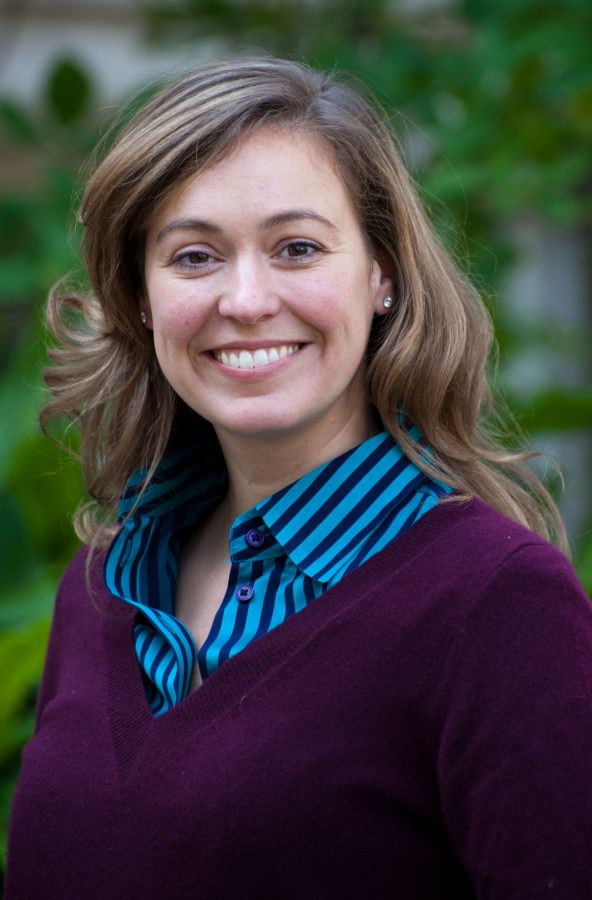New Orleans transplant encourages new generation of social innovators
October 6, 2015
Attentive and full of energy, Stephanie Barksdale sat perched at the edge of her seat Monday in the second floor common room of the Goldie and Morris Mintz Center, listening closely to a student pitch his latest social initiative.
As Director of University Partnership and Social Innovation, Barksdale has spent the past five years working with social innovation at Tulane, helping to establish the Social Innovation and Social Entrepreneurship minor. About a year ago, a $14.5 million endowment enabled her to help found a space for design thinking and social innovation: the Phyllis M. Taylor Center for Social Innovation.
“I want our students to take risks, to fail, to try again and to feel like they could be part of something,” Barksdale said.
During her undergraduate career, Barksdale majored in Costume Design and German Studies at Scripps College in California, where she grew up. In 2006, during graduate school at New York University, she first discovered the concept of social entrepreneurship.
Barksdale regrets not being able to find her passion sooner and hopes her work with social innovation helps students discover what they want to do earlier.
“I wish that it didn’t take me until my 30s to find that,” Barksdale said. “And if this generation could find that in college, it’s just a better future for all of us.”
Barksdale moved to New Orleans in 2009 and began as a special assistant in President Cowen’s office.
“When I moved to New Orleans, I was so lucky to be in this wave of post-Katrina recovery and was really part of something that made me feel like I had a sense of purpose,” Barksdale said.
At the president’s office, her special project involved launching a series of social entrepreneurship initiatives, which culminated in developing the Social Innovation and Social Entrepreneurship Minor.
“Initially it was a business plan competition, a speaker series and a student group who wanted to see if they could develop their social entrepreneurial skills,” Barksdale said. “That then grew to develop into a minor.”
Barksdale was recognized for her work after Hurricane Katrina, though when reflecting on her choice to move, she said she did not expect to move and solve problems.
“I don’t think I came thinking I could solve any problems,” Barksdale said. “I did come in thinking this was an interesting point in history where, four years after the storm, everyone who was here chose to be here, and what an interesting place to be where everyone chose to be.”
Looking back on her previous notion of choice, Barksdale describes how her view has changed as she has lived here.
“But I think that’s naive,” Barksdale said. “I think that ‘choice’ is a really privileged word and so now what I’m learning now is that we’re all a part of this very complicated system and how can I be a better part of that system.”
Program Manager for Student Programming Julia Lang, as well as leader of design thinking workshops at the Taylor Center, said one of the goals of the center is to get students excited and productive right now.
“It’s neat to see students engaged in a space where they are launching ventures or starting student organizations, or really creating change here and now,” Lang said.
The Taylor Center promotes the ideals Barksdale has worked hard to emphasize in social innovation, leadership and design thinking. At the center, faculty facilitates human-centered design crash courses, of which two are left in the fall semester.
Barksdale teaches her own section of a leadership course. In the spring, she will be working with Cowen to teach a larger scale leadership for collective impact class required for students minoring in Students of Liberal Arts Management as well as those minoring Social Innovation and Social Entrepreneurship.























Leave a Comment